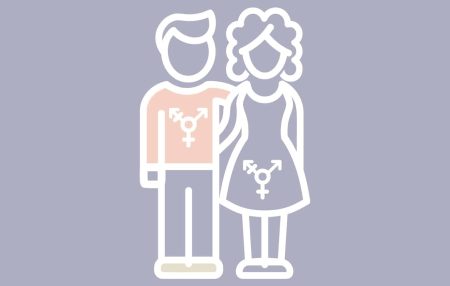9 May 2019
Fertility Fest 2019 runs from 23 April to 12 May 2019 at the Barbican in London. Currently in its third year, it’s the world’s first arts festival dedicated to fertility, infertility, the science of making babies and modern families. This year, its focus explores what it means to be human when science and technology is changing everything.
In attending this year’s Fertility Fest, I was struck by the sheer breadth of exploration and human expression of fertility, infertility, assisted reproductive technology and parenthood. Its title “Life Rewired” was immediately obvious as I listened to a panel discussion about fertility that was promoted online and simultaneously streamed on Facebook, reaching a wider audience and enabling interactive technological comments and feedback.
In just one session, I listened to discussion about the dark side of the on-demand IVF fertility market, male infertility hiding in plain sight, women’s struggle with menstruation and fertility and two dad’s challenging experiences of parenting following surrogacy. I spoke with artists who were innovatively depicting gruelling aspects of the modern-day fertility treatment process through the medium of hospital gowns and cubicle curtains. I came face to face with advertisements for Fertility Fest 2019’s theatrical centrepiece Avalanche starring well known actress Maxine Peake, which charts one woman’s emotional IVF journey. I also debated a new controversial approach to genomic science and medicine in the form of polygenic testing that assesses embryos for future intelligence.
All the people I listened to and spoke with had been affected in some shape or form by fertility, infertility, assisted reproductive technology and parenthood. They came from all walks of life and their motivation to express their experiences powerfully manifested itself through their chosen medium. For one lady, her fertility battle and desire to become a mother was expressed through blood, depicting multiple miscarriages and her conflicting feelings about her menstrual cycle and little understood female fertility narratives in art and culture. I also listened to a 42-year old man and husband eloquently voice his experience of the fertility treatment process alongside his wife and his struggle to avoid feeling invisible.
What was abundantly clear was that Fertility Fest 2019 covers a wide range of important, topical and often challenging issues including: miscarriage, the invisible man, those living a life without children, trying to conceive, race, religion and reproduction, modern family building, parenting after IVF and the future of fertility education in schools. A common theme across the debates and discussions I had with attendees was a palpable desire for there to be better awareness, understanding and education about fertility and all it represents.
Through my specialist family and fertility law practice over the last ten to twenty years, I have witnessed how advancements in science, medicine and technology have indelibly changed the way we think, feel, behave, build and live as families. I have tackled head-on difficulties and deficits between the law and people’s every-day personal and family lives and their reproductive legacy. I have seen many parents, children, donors, surrogates and families strive to create and protect modern families and drawn alongside them to help navigate complex law around fertility treatment, embryo storage, donor conception, surrogacy, posthumous conception and family disputes. The law also has its part to play in this debate about the scientific and technological revolution that is transforming our lives and our future fertility and family choices.
More than ever before, we are shaped by and live our lives through technology. This scientific and technical revolution is rapidly evolving. It has and will continue to profoundly change the way we work, socialise, manage our health and look to conceive when natural conception alludes us or is not possible through personal circumstance or choice. Fertility Fest highlights modern-day experiences of fertility, infertility, assisted reproduction and modern families in Britain. It encourages debate and helps foster awareness and understanding and that is a good thing.




